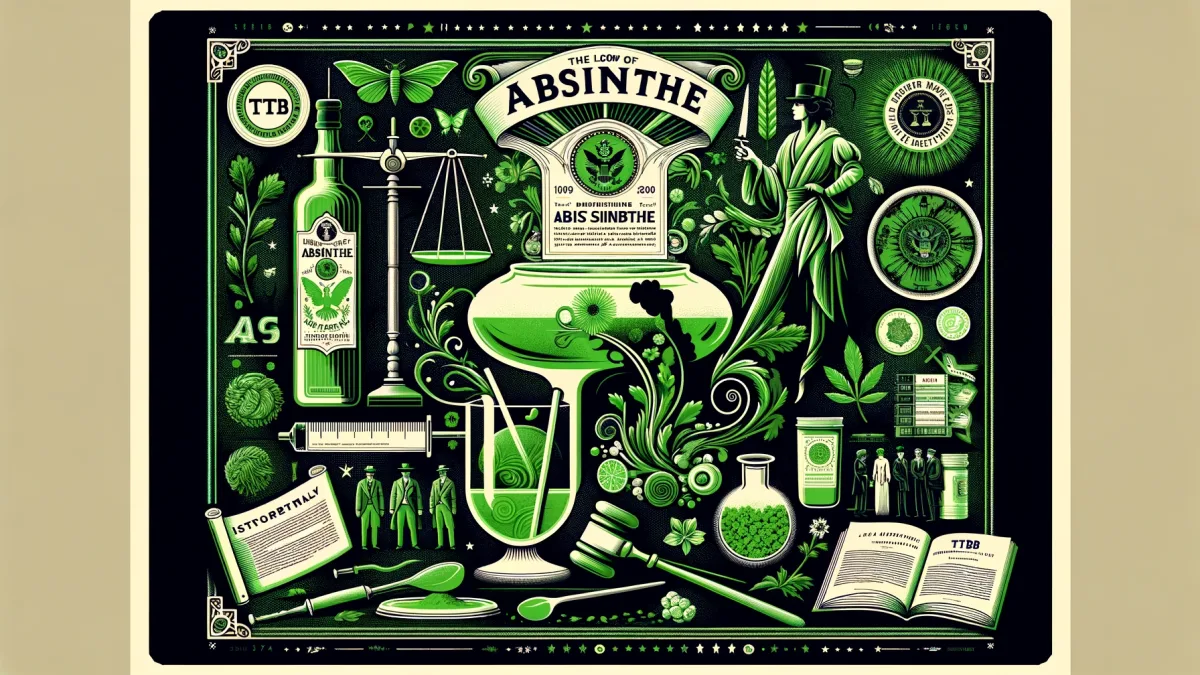Hello, curious minds and spirit enthusiasts! Today, we’re embarking on a fascinating journey through the history, mystique, and legal saga of one of the most enigmatic beverages ever concocted: absinthe. Known as “The Green Fairy” for its vibrant hue and purportedly hallucinogenic qualities, absinthe has captivated and confounded drinkers and lawmakers alike. But is absinthe illegal? Let’s pour through the facts and laws to clear the haze surrounding this legendary libation.
Absinthe’s Alluring Aura
Originating in the late 18th century, absinthe became wildly popular in France and Switzerland, particularly among artists and writers who claimed it inspired creativity. Made from wormwood (Artemisia absinthium), anise, fennel, and a medley of other herbs, absinthe’s high alcohol content and unique effects made it the toast of bohemian society.
The Ban: A Blend of Myth and Misunderstanding
The turn of the 20th century saw absinthe fall from grace. A potent combination of moral panic, dubious scientific studies, and the temperance movement led to its ban in the United States in 1912 and much of Europe shortly thereafter. The primary concern was thujone, a compound found in wormwood, believed to cause hallucinations and mental instability.
Keyword Spotlight: “Thujone”
Thujone became the focal point of absinthe’s prohibition. Early research suggested that it was neurotoxic and could provoke seizures, contributing to the drink’s reputation as a danger to public health and morality. However, subsequent studies have called these findings into question, suggesting that absinthe’s infamy may have been exaggerated.
The Green Fairy’s Legal Resurrection
Fast forward to the 21st century, and we witness absinthe’s legal resurgence. In the United States, the turning point came in 2007 when the Alcohol and Tobacco Tax and Trade Bureau (TTB) began approving the sale of absinthe under strict regulations. The key stipulation was (and is) that thujone levels must be below 10 parts per million, a threshold considered safe and non-psychoactive.
Regulatory Thicket: Understanding the TTB’s Stance
The TTB’s regulations emphasize that absinthe sold in the U.S. must not only contain minimal thujone but also adhere to labeling and marketing guidelines that avoid promoting the historical mystique of hallucinogenic effects. This careful legal dance around absinthe’s cultural legacy and its perceived dangers reflects a broader trend of reassessing the risks and benefits of historically controversial substances.
Absinthe Today: Legal, With a Dash of Caution
So, is absinthe illegal? The answer, as of my last update, is no—provided it meets current regulatory standards. However, the absinthe available in the U.S. today is a far cry from the early concoctions that fueled the fin de siècle’s creative and social revolutions. Modern absinthe, while legal, is a product shaped by legal compromises and scientific understanding, offering a taste of the past without the purported perils.
Savoring Absinthe Responsibly
For those intrigued by absinthe’s lore and looking to explore its flavors, the key is to enjoy it responsibly. Absinthe’s high alcohol content demands moderation, and its traditional preparation—diluted with water and a touch of sugar—enhances its herbal complexity rather than obscuring it.
Final Thoughts: A Toast to Knowledge and Moderation
Absinthe’s journey from banishment to cautious acceptance in the U.S. is a testament to the evolving understanding of substances and their effects on society. It underscores the importance of balancing cultural heritage with public health, legal rigor with personal responsibility.
As we raise our glasses to “The Green Fairy,” let’s do so with an appreciation for the lessons learned along the way and a commitment to savoring the moment, legally and mindfully.









Leave a Reply